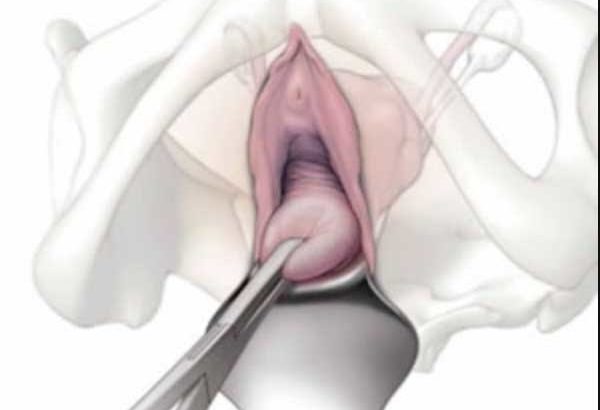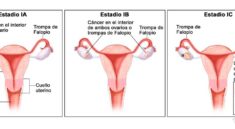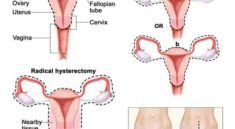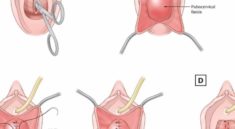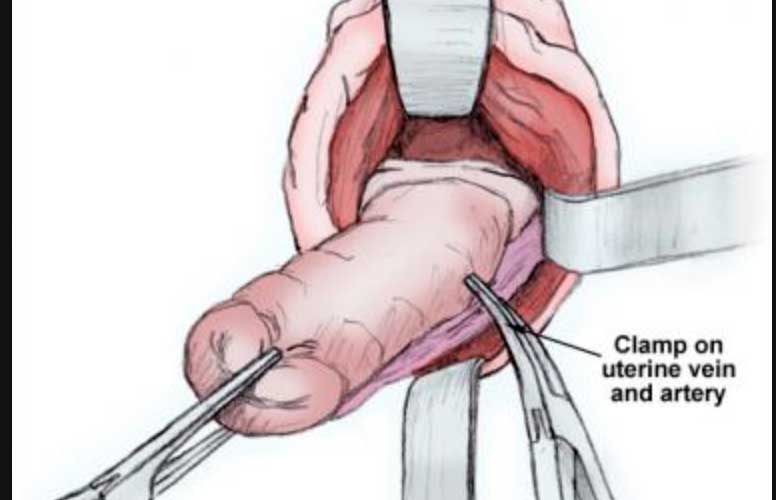
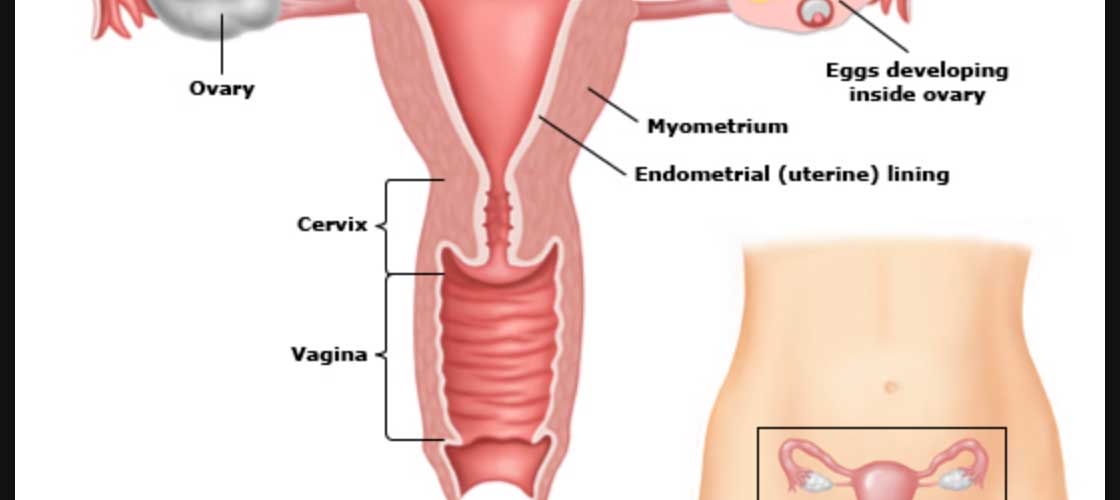
INFORMATION
Vaginal Hysterectomy
What is a hysterectomy and why is it done?
Hysterectomy is a surgical procedure in which the uterus is removed. There are several types of hysterectomy.
A partial hysterectomy is when only the upper part of the uterus is removed and your cervix is left in place. This is also known as a supracervical hysterectomy.
A total hysterectomy is when both the uterus and cervix are removed.
A radical hysterectomy, or a total hysterectomy with bilateral salpingo-oophorectomy, is when the uterus and cervix are removed along with surrounding structures, such as the ovaries and fallopian tubes.
The most common reason for a hysterectomy is uterine fibroids. Others reasons include:
- endometriosis, which is an overgrowth of tissue in the uterine lining
- adenomyosis, which occurs when endometrial tissue grows into the walls of the uterus
- uterine prolapse
- abnormal bleeding
- chronic pelvic pain
- a gynecologic cancer or precancer
There are three ways to perform a hysterectomy:
- abdominally, through a surgical incision
- laparoscopically
- vaginally
The method will be based on the reason for the surgery, plus other health considerations.
What can I expect after the procedure?
You’ll be given medication to prevent infection, plus a pain reliever, if necessary. You should be in the recovery room for an hour or two while your vital signs are monitored.
After that, you’ll be transferred to a room. Before long, you’ll be asked to stand up and move around a bit.
It’s not unusual to have a few cramps or feel a little bloated following a hysterectomy. Most women also have a bloody vaginal discharge after a hysterectomy that is normally a brownish color and may have a slight odor. This can continue for a few days to several weeks.
Recovery time for a vaginal hysterectomy is shorter than for an abdominal hysterectomy. You’ll be able to leave the hospital after a day or two, depending on how well you are recovering. The hospital will provide you with instructions regarding driving, bathing, and showering.
You’ll be able to enjoy a normal diet and move around as much as is comfortable. Try to move a little bit more every day. For the first four weeks or so, you’ll be advised not to lift anything that weighs more than 10 pounds.
It usually takes three to six weeks for a full recovery and return to normal activities, including sexual intercourse.
Follow up with your doctor as advised.
Life after hysterectomy
It’s a very personal process, but these are some of the changes you can expect:
Menstruation: You won’t have any more periods or need to buy feminine hygiene products.
Contraception: You’ll never need birth control again. But you’ll still need to protect yourself from sexually transmitted diseases (STDs).
Routine Pap tests: If you no longer have a cervix, and your surgery was for reasons other than precancer or cancer, you may no longer need Pap tests. Ask your doctor if routine Pap tests are necessary for you.
Sexuality: Sexual function should return to normal after you fully recover from a hysterectomy. Depending on the reasons for your surgery, you may find it more pleasurable, since periods and birth control are no longer an issue.
Hormonal changes: If you still have your ovaries, you won’t experience hormonal changes. If your ovaries were removed, menopause will follow. You may experience symptoms of menopause that include:
- hot flashes
- vaginal dryness
- mood changes
- discomfort during intercourse
- decreased libido
If symptoms become a problem, talk to your doctor about possible remedies. You may also need to increase your intake of calcium and vitamin D. If menopausal symptoms are severe, hormone replacement therapy may be an option.
Emotional changes: Everyone reacts differently to surgery and many things can affect your emotions, including hormonal changes. Depending on why you needed surgery and your feelings about fertility, you may experience a range of emotions.
This is normal, so don’t hesitate to discuss it with your doctor, especially if you have feelings of depression.
What is the outlook?
Most women make a full recovery and can resume normal activity within six weeks.
Tips for recovery
Instead, try to follow these tips:
- Move a little more each day.
- Avoid lifting anything heavier than 10 pounds for the first four weeks. Ask for help.
- Eat a healthy, balanced diet, and drink plenty of fluids.
- Allow plenty of time to rest so your body can heal.
- Report unexpected symptoms to your doctor.
- Make and keep your post-surgery follow-up appointment.
How long does a vaginal hysterectomy take?
How long does the procedure last? The procedure lasts one to three hours. The amount of time you spend in the hospital for recovery varies, depending on the type of surgery performed.
How painful is a hysterectomy?
After a hysterectomy, you might feel relief because you no longer have heavy bleeding or pelvic pain. … But for some women, heightened sexual satisfaction occurs after hysterectomy — perhaps because they no longer have pain during intercourse. You might feel a sense of loss and grief after hysterectomy, which is normal.
Can I drive after a hysterectomy?
You may be able to drive after 2 or 3 days if you are not taking narcotic pain drugs. You may lift 10 pounds or 4.5 kilograms (about the weight of a gallon or 4 liters of milk) or less. DO NOT do any heavy lifting or straining for the first 3 weeks. You may be able to go back to a desk job within a couple of weeks
Can I walk up and down stairs after a hysterectomy?
A good time to take a walk is after your rest or nap. You may go up and down stairs. You will probably need to climb stairs slowly at first, one leg at a time. As your body heals, this will get easier and easier.

